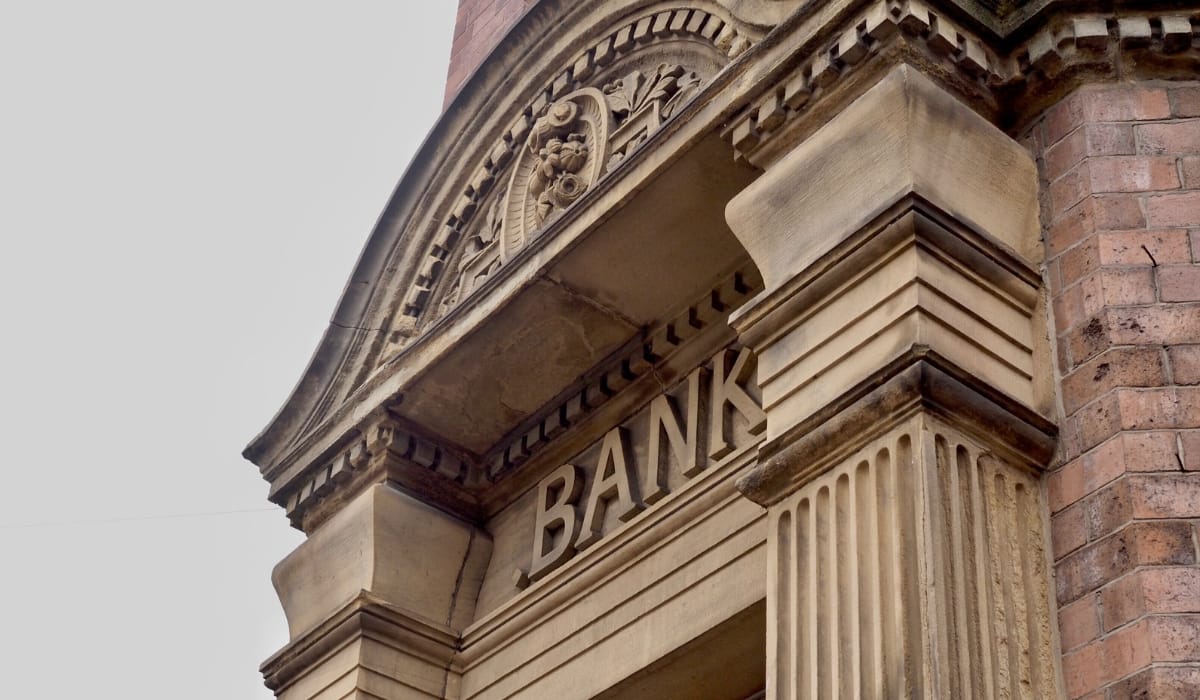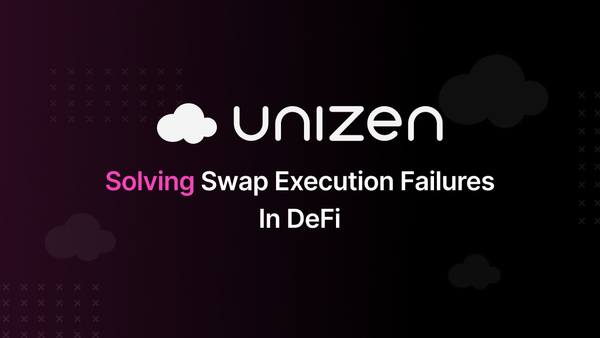The Best Top Crypto-Friendly Banks in the USA
This article discusses some of the leading crypto-friendly banks currently operating in the US. Find out which crypto-friendly banks are topping the charts.

Since the advent of digital currencies such as Bitcoin and the subsequent rise in value across a plethora of industries in the past decade, more users and merchants requiring banking solutions specific to their cryptocurrencies have emerged. With the growing number of people using cryptocurrencies and trading crypto across the United States, there is an increasing need for banking services that fit the gap between conventional financial systems and decentralized digital money. Crypto-friendly banks are positioning themselves at the forefront of this emerging market to capture a larger share of crypto-savvy customers, establishing important first-mover brand recognition. For any bank hoping to remain relevant in tomorrow's digital economy, embracing cryptocurrencies will be paramount.
Crypto-friendly banks seamlessly integrate cryptocurrency functionality within traditional banking platforms. Users can deposit various digital assets into insured interest-earning accounts and freely exchange between coins and fiat currencies through built-in trading interfaces, just as they would with conventional currency deposits. Innovative products like crypto-enabled debit cards allow the spending of any account balances as if they were local cash at any merchant accepting major credit networks worldwide without requiring liquidation into dollars. Standard services such as bill pay, transfers, ATM withdrawals, and electronic checks are also extended to include cryptocurrencies.
Behind the scenes, banks and financial institutions utilize advanced multi-signature wallet infrastructure and blockchain integrations to facilitate these hybrid products. They do this while maintaining a smooth user experience, bridging between digital and traditional finance networks. Businesses particularly benefit from the option to directly accept and secure crypto payments from customers and receive automatic deposits as their preferred currency through the bank's merchant processing solutions. As regulation progresses, expect additional offerings like crypto-backed loans and check deposits to strengthen further ties between digital assets and users' daily banking activities, especially with the influence of the US Federal Reserve. Overall, crypto banks establish themselves as one-stop financial solutions that seamlessly bridge both fiat and crypto needs.

Key Features of the Best Crypto-Friendly Banks
Here are some of the key features of crypto-friendly banks worldwide:
1. Integration of Fiat and Cryptocurrency Transactions
Crypto-friendly banking services include the ability to convert between traditional fiat currencies (like USD) and various cryptocurrencies (Bitcoin, Ethereum, etc.), catering to crypto enthusiasts and enhancing their appeal in 2024 within a single platform. These banks often easily explain the fees surrounding cryptocurrency transactions in the crypto world., including the conversion rates of the specific cryptocurrencies, the network fees, and any other additional charges. Most banks that accept cryptocurrencies are equally responsive to various forms of crypto assets, ensuring themselves a strong position in the increasingly growing and developing crypto space in 2024.
2. Emphasis on Compliance With Regulations in the Crypto Industry
These financial institutions must adhere to the KYC and AML principles in the same way that the existing financial institutions do. To this end, these banks tend to work hand in hand with the regulatory authorities in the country to determine the current legal requirements they have to adhere to.
3. Provision of Secure Digital Asset Management Services
Some traditional banks may provide customers with custody services, whereby they store customers’ cryptocurrencies for them. Some banks may allow customers to use non-custodial wallets if they do not want banks to hold their private keys. Certain banks might have extra features linked to cryptocurrencies, including staking, lending, or borrowing.
Top Crypto-Friendly Banks in the USA
1. Bank of America
Bank of America is a giant in the traditional banking space, but it has extended its influence into the cryptocurrency market. Most of the bank's operations have been done with cryptocurrencies through products named Exchange-Traded Crypto Products, or ETCPs in their shortened form, which are financial instruments that expose cryptocurrencies without actual ownership. In this respect, investors get exposure to cryptocurrencies while hedging against certain specific risks related to ownership. Examples of ETCPs offered by Bank of America are Bitcoin and Broad-based crypto ETFs.
Apart from ETCPs, Bank of America has equally been involved in cryptocurrency-related research, positioning itself among the best crypto institutions. This has spanned the very technology driving the process, that is blockchain and smart contracts through considerations of regulation, market dynamics, and possible use cases for cryptocurrencies. This has helped the bank keep tabs on the developments in the cryptocurrency market and what this could portend for the future of the financial industry, especially with the rise of crypto-friendly banks worldwide.
2. J. P Morgan
J. P. Morgan is gradually assuming a strategic role in the normal banking sector and the burgeoning crypto market. It is also important to know that J. P. Morgan, being a bank, had been skeptical about Bitcoin a few years ago and has become much more receptive to cryptocurrency within the last three years. J. P. Morgan has created a precedent for major US banks to permit their financial advisors to allow wealth management clients to access cryptocurrency funds.
Advisors are informed by the bank that they can buy and sell on behalf of a client's five crypto funds. It provided exposure to Bitcoin through two various crypto funds that are externally managed. The bank allows individual investors with at least $2 million or investment firms with $5 million or more to access its business accounts. This new policy of JPMorgan applies to every client seeking advice, including self-directed users of its Chase trading app, clients whose assets are managed by JPMorgan Advisors, and ultra-high-net-worth people serviced by the private bank.
JP Morgan now offers cryptocurrency transfer-related services on the blockchain, change-of-hands cryptocurrency exchange services, and cryptocurrency payment processing services, which include clearing crypto payments through credit and cash cards, settlement of cross-border payments by handling foreign exchange settlements in a variety of currencies across multiple borders, and services to include creating and managing virtual checking accounts.
3. Goldman Sachs
It is, however, important to note that Goldman Sachs had not directly jumped into cryptocurrency without thinking, unlike some digital asset firms that are more aggressive in their approach. Goldman Sachs Group has engaged institutional blockchain and cryptocurrency financial services provider Galaxy Digital to conduct its initial OTC crypto within the form of a Bitcoin non-deliverable option. This is the first over-the-counter crypto transaction by a major bank in the US space and can be considered evidence of investment banks broadening their cryptocurrency services and incorporating digital assets. The trade also continued the bank’s relationship with Galaxy Digital to strengthen its cryptocurrency resources further, enabling Goldman’s initial CME Group Bitcoin futures deal.
It plans to execute three tokenization projects with large clients by the end of the year, the first of which was in the US, aligning with trends in the crypto trading sector and the growing influence of digital asset firms. They plan to pursue various opportunities in the crypto economist space, particularly complex tokenization, where so-called ‘real-world assets’ like money market funds or real estate holdings are tokenized and recorded on public or private blockchains.
4. Signature Bank
This bank had been considered one of the most focused on cryptocurrencies, and it is possible to name the platform based on the Signet real-time payments platform as a major reason for this. With Signet, companies could perform transactions when the business was closed, thereby making it very useful for critical functions such as minting and redemption of stablecoins. The Signet Platform allowed clients of Signature Bank to transfer money in 30 seconds, 24/7, by converting US dollars into tokens in line with the Ethereum ERC-20 standard.
5. BankProv
BankProv has released that it will partner with a proper cryptocurrency exchange, Rocketplace, to provide banking services and solutions for a new digital asset platform. Some of the services that BankProv offers are custody services for cryptocurrencies, a trading platform for institutions, and lending and payment solutions. BankProv will provide On and Off-Ramps for On and Off-Ramps as a gateway from fiat (USD) to Crypto so users can deposit, trade, and withdraw from the platform quickly. Collectively, they are integrating the hours-of-operation, free-of-charge trading platform offered by Rocketplace with banking essentials to invest efficiently. Regarding legal requirements, it is imperative to note that BankProv has FDIC insurance covering customer deposits of up to $250,000, ensuring safety in the crypto world.
6. U.S Bank
On this basis, the U.S. Bank is ready to provide cryptocurrency custody services, which are in demand by customers of Global Fund Services – an American banking division focusing on providing concise and innovative services for investment funds and their managers. US Bank customers have access to custody solutions that are the most secure, compliant, and regulated in the current market. Regarding the U. S. Bank’s internal cryptocurrency custody services, an investment fund can keep its cryptocurrency in the same account as stocks, dollars, bonds, and other assets, reflecting the trend of digital banks integrating traditional and digital assets.
U. S. Bank provides various business banking solutions depending on the industry and specific types of businesses. These include account management, overdraft protection checking and savings accounts, merchant services, loans, credit cards, cash flow management, risk management services, and invoicing solutions, all of which are essential for supporting crypto transactions. This includes financial rewards in terms of cashback, privileges such as no fees, and lower interest rates in specific accounts or services.
7. Silvergate Bank
Silvergate was known to have changed its strategic direction from banking to the cryptocurrency sector at one point in its development. Some of its major services included the Silvergate Exchange Network. This RTLS solution enabled exchanges, hedge funds, asset managers, and Fintech to process and settle large cryptocurrency transactions in real time. The SEN helped manage the continuous trading environment of cryptocurrencies and the underlying financial system's limited business hours to benefit its clients’ counterparty risk.
8. Mercury Bank
Mercury Bank is one of the banks in 2024 that is adapting to the evolving landscape of digital finance. Notably, Mercury is the bank for every cryptocurrency startup. Mercury is found to be a reliable financial banking platform built specifically for startups. Mercury Bank does not require any account minimums, overdraft fees, monthly fees, or fees for opening an account for checking and savings, appealing to those looking for an online bank. They can deposit checks, make payments with a virtual debit card, and engage in other banking operations, including managing their crypto accounts. Mercury guarantees its clients unshakeable stability, a more consistent payment process, a higher level of banking protection, and refined settings for its clients, making it a strong ally bank in the crypto space. Other security measures include the ability to deposit up to 5M$ FDIC on checking and savings deposits within Mercury’s partner banks, as well as through the use of sweep networks.
Mercury also automates and rationalizes the management of finances, allowing startups of varying sizes to prioritize growth at scale in the evolving crypto space. Mercury Bank doesn’t have express restrictions regarding purchasing cryptos using your Mercury account, making it a go-to choice for crypto enthusiasts. While conducting transactions through Mercury, wires passing through your account will have your business name as the sender of the wire, which is beneficial to exchanges in processing and crediting wires.
9. SoFi
SoFi Bank is a financial institution that provides banking services with Crypto. Other services include investing, loans, mortgages, and other relevant duties to its clients. Therefore, it is an entirely appropriate combination of conventional and crypto-based services. What SoFi has for everyone is something that everyone should consider, as it is available to all, including those exploring crypto investments. Regarding cryptocurrency trading, SoFi is highly developed, with affordable fees, excellent security protocols, and advanced tools that novices and professionals appreciate.

Benefits of Choosing the Best Crypto-Friendly Bank in 2024
Here are some key benefits of choosing a crypto-friendly bank:
1. Access to Tailored Financial Services
Crypto-friendly banks understand the unique needs of cryptocurrency users. They offer deposit and checking accounts, allowing customers to store, receive, and send digital assets, making them a vital part of the crypto business landscape. These banks also provide trading platforms and custody solutions that make it easy to buy, sell, and exchange coins and tokens. This tailoring streamlines financial management for those actively involved in the crypto economy, enhancing their experience in the banking sector.
2. Enhanced Security and Insuring of Deposits
Enhanced Security and Insuring Deposits are crucial features offered by the best crypto-friendly banks worldwide. Standard security measures like advanced encryption and two-factor authentication help protect cryptocurrency holdings at these banks. Additionally, some operate as regulated financial institutions and provide FDIC insurance on deposited fiat currency up to legal limits. This reassures customers that their crypto and cash deposits are protected against hacks and thefts. The extra security features ease traditional banking risks for those new to digital assets.
3. Opening Financing Opportunities for Business
Crypto-focused banks enable businesses to leverage cryptocurrencies for financing. They offer lending products like crypto-backed loans, using digital assets as collateral. Merchants can also accept crypto payments through these banks' payment processing platforms. This allows businesses involved in blockchain, DeFi, NFTs, and more to unlock capital through crypto-collateralized loans. It also simplifies accepting various digital currencies traded on Unizen as payment for goods and services, a feature many banks offer today. The financial services help entrepreneurial ventures in the emerging crypto economy scale up their operations.
Challenges Faced by Prominent Crypto-Friendly Banks in the United States
Here are some of the key challenges faced by many crypto-friendly banks in the Region:
1. Risk of Fraud and Money Laundering in the crypto market
Regardless of the anonymity that cryptocurrencies offer, they are extremely dangerous as far as illicit issues like money laundering or even financing terrorism are concerned. These risks are expensive to mitigate, and the controls are necessary to satisfy the know-your-customer (KYC) and anti-money laundering (AML) rules, thus raising the total expense for banks in crypto operations.
2. Operational Challenges in the Crypto Business
Handling cryptocurrency transactions requires different technical skills and systems than traditional currencies. For example, crypto wallets, private keys, blockchain protocols, etc., add operational complexity for banks whose expertise traditionally lies elsewhere, making the learning curve steep.
3. Not Enough Large Institutional Demand
Large institutional investors, potential big customers of crypto banking services, have still not fully entered the crypto markets due to regulatory barriers and volatility concerns. There has been quite some growth and evolution in this aspect, but more institutional investors are still needed to engage with the best crypto-friendly banks worldwide. This constrains the addressable market for crypto banking in the initial phases, particularly for new entrants in the crypto business.
4. Cultural Resistance
Some within the conservative banking community are skeptical of cryptocurrencies and see them as competitors rather than complementary financial innovations, especially as banks in 2024 adapt to this new reality. This internal cultural resistance also challenges banks to venturing into this new domain.
Conclusion
The crypto banking landscape in the United States is still developing, but innovative players are emerging. Some Financial institutions have established themselves as leaders by being among the first to embrace cryptocurrencies and tailor banking services for digital asset businesses and users. More recently, new banking alternatives, including top crypto exchange platforms, have expanded options for savers and investors seeking to put their crypto to work. As blockchain and cryptocurrency adoption continues to rise, these crypto-friendly banks are helping build bridges between traditional finance and the emerging crypto economy.
By offering FDIC insurance, advanced security features, and seamless access to tailored crypto products, they are making it safer and more convenient for individuals and companies to leverage digital assets through the banking system. Overall, crypto-friendly banks in the U.S. signal growing mainstream acceptance of cryptocurrency and position the country as a hub for the nascent digital finance industry.



